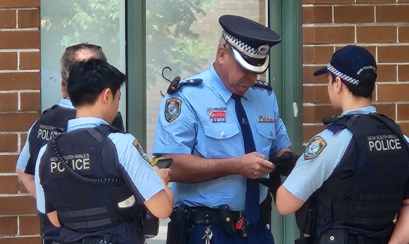These days, saying goodbye to friends at school only means, goodbye until I get home and log on. SMS, email and social networking sites are just part of life for today’s youth. While there can be little doubt that technology has done amazing things for education, most of us are fairly aware of the dangers lurking online.
Facebook scares many parents. The recent murder of Nona Belomesoff, the teen who was lured on a “work experience” camping trip, believing her Facebook “friend” worked for an animal welfare group and would help her get a job, sends an important message. Friends we meet online are essentially strangers.
While many point the finger at Facebook, there are tons of sites attracting young people which offer chat room facilities. Many sites claim to be safe for kids because the chatroom is “moderated”, meaning that someone monitors the behaviour of users and makes sure nothing untoward is said.
But the moment someone chooses to enter a private chatroom this is no longer the case.
Most law enforcement agencies investigating internet crime would agree; private chat rooms provide an easy way for sexual predators to gain access to young people. Predators can lurk in public chat rooms, looking for a vulnerable young person to invite into a private chat. Then the manipulation, or “grooming”, can commence, often with the intent of meeting the child face to face with a view to sexual activity. Typically, the predator will pretend to be younger and have similar interests to the child.
This is the stuff of horror for parents.
The Criminal Code governs telecommunications offences in Australia. Someone who is 18 or over, who uses the internet or mobile phone with the intention of getting an under-16 year old to engage in sexual activity with them, faces a maximum of 15 years in gaol. It’s also an offence to “groom” an under-16 year old to make it easier to get them to engage in sexual activity, which carries a 12 year sentence.
But while there are laws to protect young people online, catching perpetrators is not always easy. For a start, unless a child comes forward and alerts someone about inappropriate chat, no one may ever know.
And even when authorities have been alerted, having enough evidence to make an arrest can be a challenge. For example, unless the chat includes a specific request to meet the child face-to-face, proving intent can be difficult.
Technology isn’t going away. The best protection we can offer our kids would seem to be education. Keep personal details private, block people who use inappropriate language, stay out of private chat rooms unless you know who you are talking to, and let someone know when a line has been crossed.
For more information please see Court finds school’s duty of care extends beyond school gate.












